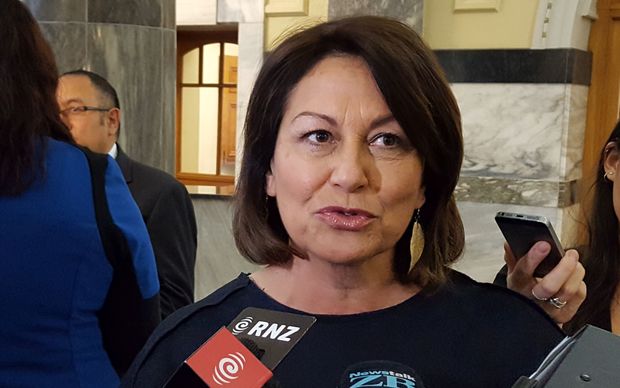Oceanía/Nueva Zelanda/11 de Septiembre de 2016/Autora: Karoline Tuckey/Fuente: Stuff
RESUMEN: Tras el lanzamiento de la primera Comunidad de Aprendizaje de Palmerston North, un reportero de Karoline Tuckey habla a educadores en Manawatu sobre el nuevo esquema. Se espera que los niños serán los ganadores si en las escuelas aprenden a jugar juntos muy bien a través de las nuevas comunidades cooperativas de de aprendizaje, el cual establece los grupos de las escuelas para hacer frente a los retos juntos. Los críticos dicen que las escuelas de Nueva Zelanda han sido arruinadas por una tendencia hacia el aislamiento, como resultado de las estructuras de autogestión introducidas por las escuelas del mañana. Por lo tanto, los maestros de la puesta en marcha de la primera Comunidad de Aprendizaje de Palmerston North, el 29 de agosto fueron entusiasmados con las oportunidades que el programa podría contener para el desarrollo y aplicación de la enseñanza a través de la colaboración.
Following the launch of Palmerston North’s first Community of Learning, reporter Karoline Tuckey speaks to Manawatu educators about the new scheme.
Children are expected be the winners if schools learn to play together nicely through the new cooperative Communities of Learning scheme, which establishes groups of schools to tackle challenges together.
Critics say New Zealand’s schools have been blighted by a tendency toward isolation, resulting from the self-management structures introduced by Tomorrow’s Schools.
Meanwhile those who excell in teaching positions find promotions funnel them toward administration roles. Many educators say that both factors have resulted in a system that has not fostered the sharing of teaching expertise and skills.
So, teachers at the launch of Palmerston North’s first Community of Learning on August 29 were understandably excited about the opportunities the scheme could hold for development and application of teaching through collaboration.
About 320 teachers, principals, and board of trustee members from 10 schools in the Palmerston North East Communities of Learning (CoL) joined speakers for the launch at the Palmerston North Convention Centre. The group has a total student population within their boundaries of about 4500.
CoL were initiated by the Ministry of Education. They are formal clusters of schools that define the common challenges they face, share expertise, skills and successful ideas, and develop new ideas to address their challenges.
CoL are formed around geographic boundaries, and schools from early childhood education to secondary schools can opt in. Once formed, each group works with the Ministry to define its goals, and how to pursue them.
he PNECoL lead principal Peter Brooks (principal of Freyberg High School) says the group submitted the first expression of interest nationally, and has now been granted $750,000 a year, over three years.
This covers release time for school staff to work on the project, including ‘within school’ teachers, ‘across-school’ teachers and the lead principal.
The balance of teachers would be funded for about half to one day per year of release time.
«It’s hugely exciting, because [schools] have been silo-ed before, we’ve been little islands, and it’s crazy.
«It’s not like [peer development] hasn’t happened before, people do go into each others’ classrooms, but we’ve had to struggle with resources, and you don’t get the release time.
«They might be a master teacher, but how do you get the time for people to come and watch them.»
So far a working party has analysed the strengths and weaknesses of the ten schools in the Palmerston North East group to set three «Achievement Challenges» they plan to tackle as a group.
These are: for 85 per cent of their students to achieve NCEA level 2 in maths, to raise the reading levels of boys (who are lagging behind girls), and to raise students’ science, technology and critical thinking skills.
The group would also look at ideas to improve students’ transitions between schools and schooling levels, including introducing a program to give consistency in national standards assessments.
Brooks says students arriving at high school, even with the same national standards scores, could have widely varying levels of competencies.
«It hasn’t been moderated and given the same rigour [across all age groups] as it has at NCEA level, there’s no real consistency between the schools.»
Early childhood educators, tertiary representatives, political bodies and Rangitane were also involved as partners to the group, he says.
«It’s going to have a big impact on the community, we’ve got a learning pathway from 3 [years] to 23, and that’s 4500 students – if you can improve their learning and job prospects and futures across the community…»
Russell Street School board of trustees member Leanne Fa’aea says the local, yet big picture approach had a lot of pluses.
«I think communities can become overly concerned only about what’s happening in my school, but those kids will have to go off to school somewhere else, and then to work in the community.
«I like the idea that teachers are going to be teaching teachers, because they know their craft and they know their kids, and it’s community based – it’s our community.»
There was some confusion among parents about what CoL were, but this could change as more tangible plans were formed, she said.
Freyberg High School Head of English Rachel Shepherd, said teachers were excited to find ways to enrich their teaching practice, and children’s learning, but wanted to know more about how the program would be run.
«The biggest question mark is just how well this works in practice. We’re getting a lot of information about the potential … but not how it will work in practice.»
Ross Intermediate School teacher Nick Wilson was hopeful collaboration would give schools more information and tools.
«Better communication can only be a good thin for kids – in the past there’s nothing that has had to go on in terms of communication between schools.
«I’m quite excited that science and technology is going to play quite a big part in it, and that greater engagement in those curriculum areas is something they’ll be putting a lot of attention into.»
Palmerston North-based New Zealand Education Institute representative Liam Rutherford said the union was supportive of the CoL, but cautious of how it would affect teachers’ workloads.
«We’d like to see some of the [self-determination] around the flexibilities that CoL get to shape how the actual funding is used around resourcing and leadership structures.
«We appreciate any time that we can come together to allow us to collaborate – at the end of the day, if teachers see value in it, they will make it work.»
Schools in the Palmerston North East CoL: Freyberg High School, Russell Street School, Ross Intermediate School, Milson School, Roslyn School, Terrace End School, Whakarongo School, Ashhurst School, Hokowhitu School and Parkland School.
Other nearby CoL are a Palmerston North and Rangitikei one covering Catholic schools, and a Horowhenua CoL.
Communities of Learning, by the numbers:
148 CoL approved nationally.
About 1260 schools involved so far – more than half of the national total.
This covers 410,000 children.
Funding is from the $359 million national Investing in Educational Success initiative.
CoL will be rolled out over three years.
Fuente: http://www.stuff.co.nz/national/education/84044228/Palmerston-North-schools-to-learn-using-a-community-approach













 Users Today : 193
Users Today : 193 Total Users : 35459788
Total Users : 35459788 Views Today : 353
Views Today : 353 Total views : 3418325
Total views : 3418325